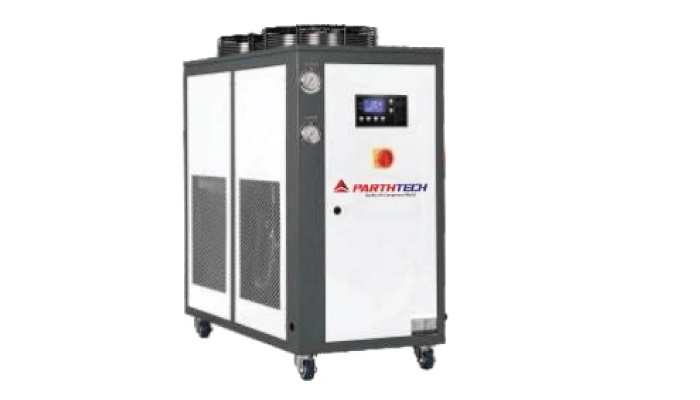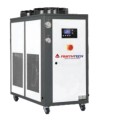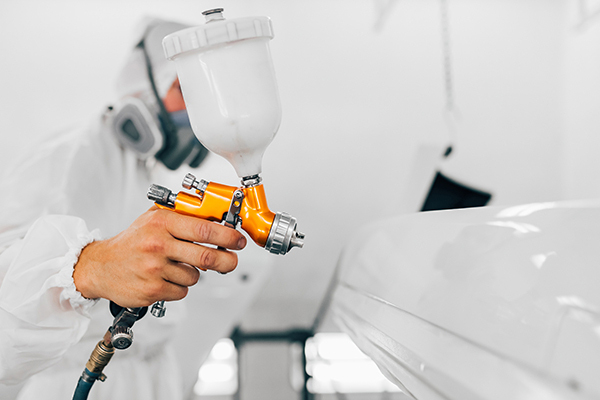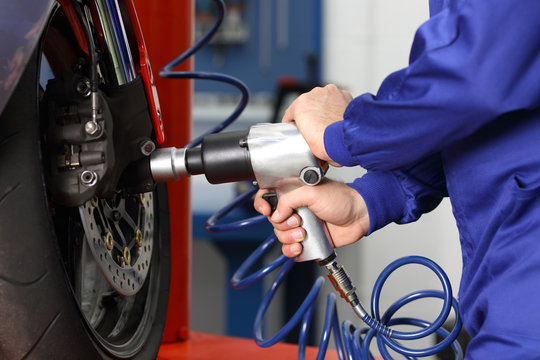-
Call
-
Whatsapp
9825014048
-
Location


Chillers
Chillers
Application: Chemical and pharmaceutical plants, Dairyu and food industries, Plastic industries, Air compressor system, Foundries, Plasma machines.
Industrial processes often generate significant amounts of heat, and effective temperature control is critical to ensuring smooth operations.
Chillers are essential components of many industries, offering a reliable solution for managing temperature in various applications. In this comprehensive guide, we will delve into chillers, exploring their functionality, importance, and diverse applications.
Chillers
Chiller for Chiller
Maintaining the correct temperature is often a delicate balance in industrial manufacturing. Temperature control is critical to product quality and equipment performance, from manufacturing and data centres to medical devices and commercial facilities. Chillers are the unsung heroes who make it all possible.
How the Chiller Works
Chillers work on a simple but effective principle: they remove heat from one source or process and release it to another, ensuring the desired temperature is maintained. This is done through the cooling cycle, which undergoes a cooling cycle to absorb and dissipate heat.
Different Types of Chillers
Chillers come in many types, each designed for a specific application. The three main types are air-cooled, condensed, and vacuum-cooled chillers. Each method has particular advantages and is suitable for different situations. Applications of chillers Chillers find applications in many different industries:
- Manufacturing and Factory Equipment: Cooling equipment, machinery and procedures to ensure efficiency and product quality.
- Commercial Air Compressor: To create an attractive environment in commercial buildings, shopping malls and hotels.
- Medical Device Refrigeration: To ensure the accuracy and reliability of medical imaging products.
- Food and Beverage Industry: Storage Systems for Cold Storage.
- Data centres: To maintain optimal temperatures to prevent equipment from overheating.
Chillers Have Several Distinct Advantages:
- Accurate temperature control: A specific temperature can be maintained, essential for sensitive industrial components and equipment.
- Energy efficiency: Modern chillers are designed to save energy, reducing operating costs.
- Environmental benefits: Freezing uses environmentally friendly refrigerators, contributing to sustainability efforts.
- Reduced operating costs: Improved temperature control can reduce maintenance and repair costs.
Choosing the Right Chiller
Factors such as capacity, efficiency, environmental considerations, and long-term operating costs are required when choosing the chiller to suit your needs. It is essential to equip the chiller to meet the specific requirements of your application.
Installation and Maintenance
Proper installation and regular maintenance are essential to reliable chiller operation. Following manufacturer instructions and regular inspections can extend the life of the chiller and ensure optimum performance.
Features of Chillers
Efficient Cooling
- Precise Temperature Control: Chillers provide precise temperature control, ensuring that the cooling process meets specific requirements. This is important in applications where temperature changes affect product or processing efficiency.
- Fast cooling power: Chillers are known for their fast cooling. The temperature can be reduced rapidly, which is essential when maintaining constant conditions is important.
- Consistent Performance: Chillers provide consistent cooling performance regardless of outside conditions. In order for uninterrupted operations to take place, this reliability is crucial.
Energy Efficiency
- Variable Speed Compressors: Many modern chillers are equipped with variable-speed compressors that vary their cooling capacity according to demand. This not only saves energy but also extends the chiller's life.
- Low energy consumption: Chillers are designed to be energy efficient, reducing electricity bills and the environment.
- Energy efficient refrigerators: Cold storage units use environmentally friendly refrigerators with high thermal efficiency to increase their overall efficiency.
Reliable Reliability
- Rugged Construction: Chillers are built to withstand harsh industrial conditions. Their rugged construction ensures reliable performance even in harsh conditions. Low Requirements: Routine maintenance is kept to a minimum, reducing downtime and associated costs.
- Longevity: An adequately maintained chiller has a long life, providing a good return on investment.
Environmentally Friendly
- Environmentally Friendly Water: Water coolers use environmentally friendly refrigeration that complies with regulations and does not deplete the ozone layer.
- Reduced carbon footprint: Energy-efficient operations minimise carbon footprints, contributing to sustainability efforts.
- Compliance: Chillers are designed to meet or exceed environmental safety regulations, ensuring responsible use.
Implementation Changes
- Versatility in Industrial settings: The flexibility of chillers allows them to be used in a wide range of industries, from construction to pharmaceuticals
- Commercial and residential uses: They work equally well in commercial spaces, data centres and residential buildings.
- Ready-made Solutions: Chillers can be tailored to specific requirements, ensuring the best fit for various applications.
Easy-To-Use Control
- Intuitive Interfaces: User-friendly interfaces make operating the chiller and adjusting settings easy.
- Remote monitoring and control: Many chillers offer remote monitoring and control, allowing users to manage their systems from anywhere.
- Automated maintenance alerts: Chillers can send automatic alerts when necessary, reducing the risk of unexpected breakdowns.
Low-Cost Operations
- Lower operating costs: Chillers’ energy efficiency and reliability mean lower operating costs over their lifetime.
- Less downtime: Reduced maintenance and reliable operation reduce downtime, improving productivity.
- Improved efficiency: Increased efficiency means chillers can reach and maintain desired temperatures faster with less power consumption.
Safety Measures
- Refrigerator leaks: The advanced safety features of refrigerators include leak detection systems to ensure safety if a leak occurs.
- Built-in safety features: Chillers have built-in features that protect against faults and unsafe conditions.
- Emergency measures: Emergency measures are available to prevent damage or accidents in extreme cases.
| Cooling Capacity TR |
Ref. Capacity K.cal/hr. |
Power KW |
Pump LPM |
Tank Capacity LTR. |
| 2 | 5160 | 2 | 45 | 120 |
| 3 | 7740 | 3 | 45 | 120 |
| 4 | 10234 | 3 | 60 | 150 |
| 5 | 12900 | 4.5 | 60 | 175 |
| 7.5 | 20400 | 6 | 120 | As per Req. |
| 10 | 26230 | 9 | 120 | As per Req. |
| 15 | 38700 | 13.5 | 120 | As per Req. |
| 30 | 82700 | 27 | 180 | As per Req. |
| 50 | 138000 | 45 | 250 | As per Req. |
Spray Painting
Single-stage air compressors are essential tools in the field of spray painting, where precision, consistency, and quality are paramount. These compressors provide a continuous source of compressed air, which is indispensable for the operation of paint spray guns and other painting equipment.
Powder Coating Industries
Single-stage air compressors are indispensable tools in powder coating industries, where the precise and consistent application of powdered coatings onto various surfaces is critical. These compressors provide a reliable source of compressed air, which is an essential component of the powder coating process.


FAQs

Frequently Ask Questions
A chiller is a device that uses a cooling cycle to remove heat from a space or process, maintaining a desired temperature.
Chillers play an important role in ensuring quality, equipment efficiency and system reliability.
An air-cooled chiller transfers the heat to the surrounding air, and a water-cooled chiller discharges the heat through a water-cooled condenser.
Consulting with experts or using capacity calculators can help you choose the right chiller size based on your specific needs.
Modern chillers use environmentally friendly refrigerators and are energy efficient, contributing to environmental sustainability efforts.




